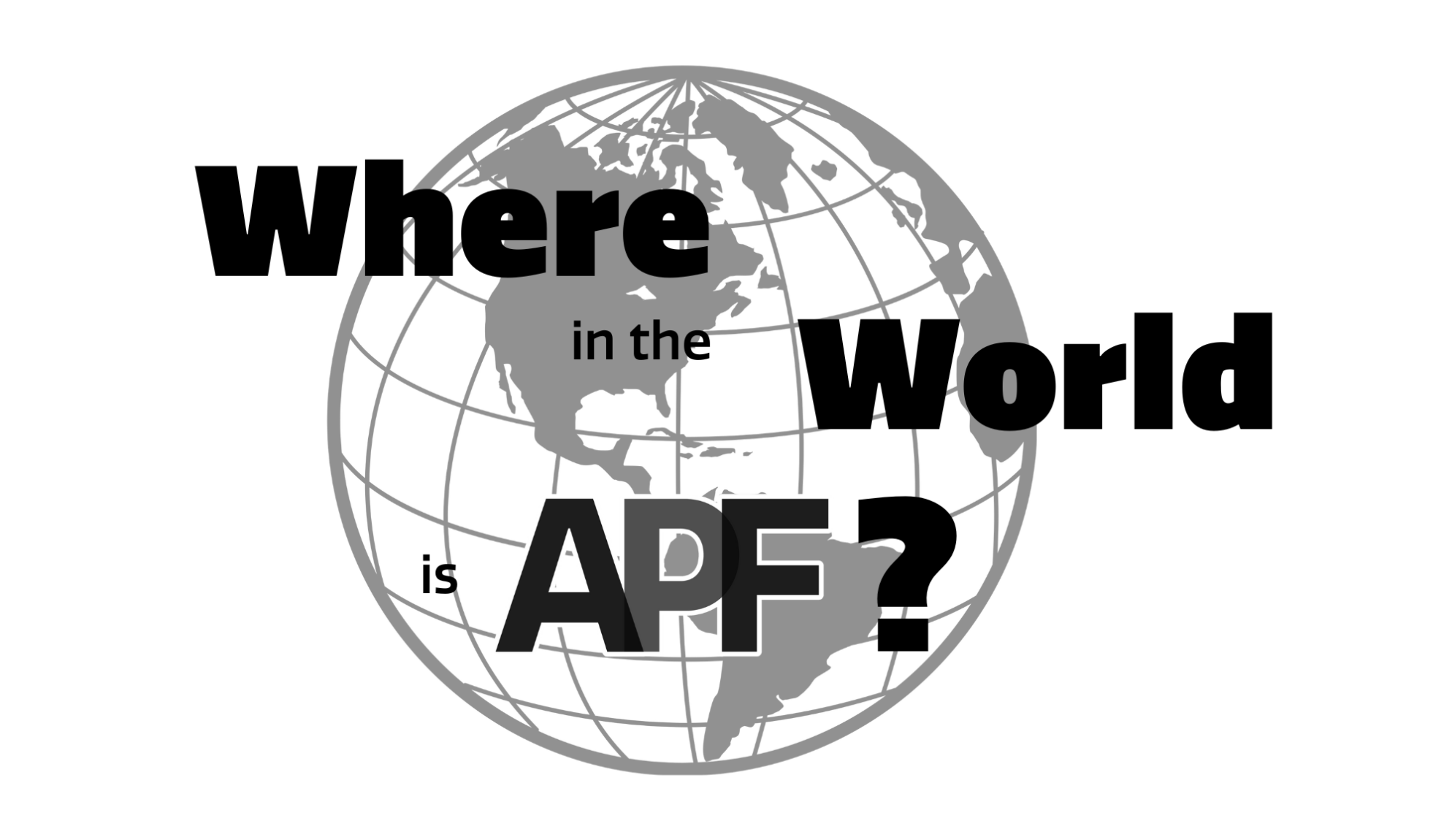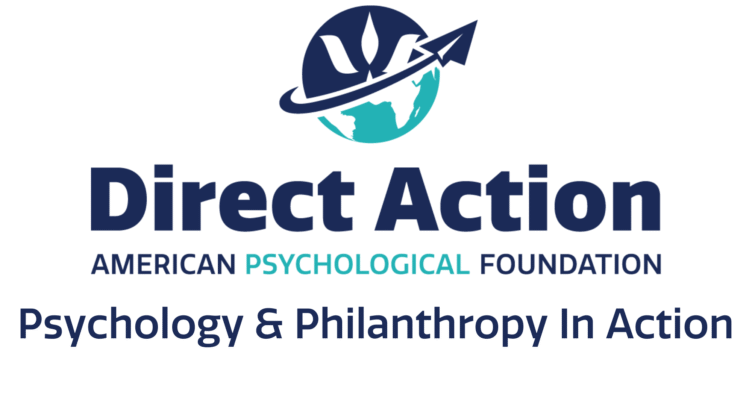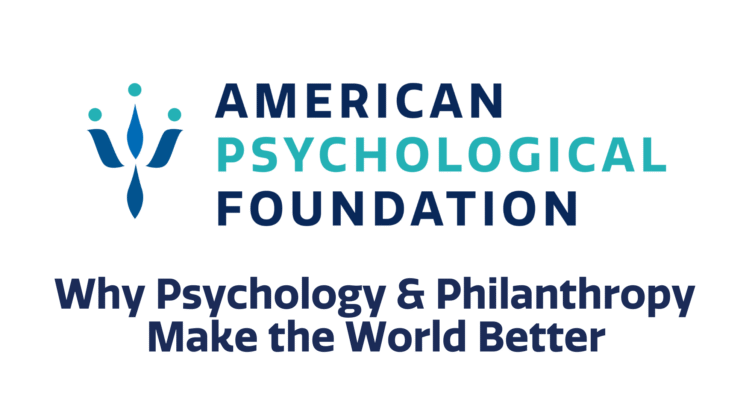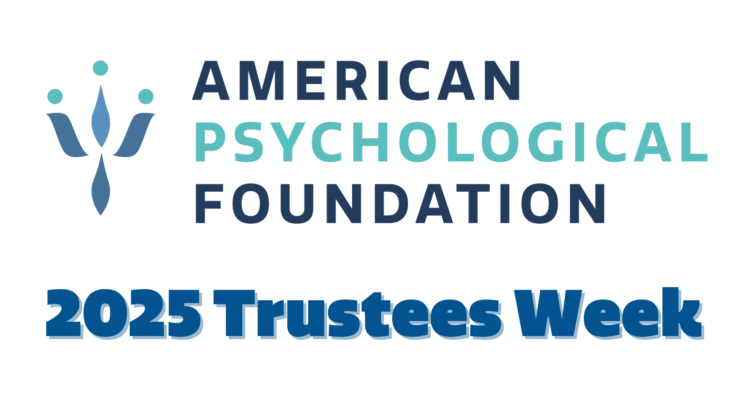Where in the World is APF with Dr. Matthew Podlogar


Welcome to “Where in the World is APF”, our recipient highlight series where we catch up with our grant, scholarship, and award recipients all over the world!
Today, we’re speaking with Dr. Matthew Podlogar, who received The Trust Grant in honor of Eric A. Harris, EdD, JD in 2017 for the project, “Investigating the Selection Choice of ‘Prefer Not to Disclose’ in Self-Report Suicide Risk Screening.”
Can you give us an update on your career and research since being awarded The Trust Grant in honor of Eric A. Harris, EdD, JD in 2017?
Since receipt of the APF grant which helped fund my doctoral dissertation, I proceeded to complete a postdoctoral fellowship in Veteran suicide prevention at the Rocky Mountain VA Mental Illness, Research, Education, and Clinical Center (MIRECC) and I currently am the Clinical Psychologist within the Research and Development Team at the Veterans Crisis Line (VCL), Office of Suicide Prevention, US Department of Veterans Affairs. In this role, I serve as a clinical research mental health expert for VCL and coordinate the implementation, analysis, and reporting of VCL research and evaluation projects for executive leadership and for the public.
In what aspects has your APF-funded research impacted your career as a researcher and your contributions to the field?
Quantitatively, the APF-funded research has resulted in four publications (in the journals Assessment and Journal of Personality Assessment), which in total have accumulated 44 citations from other publications, including inspiring a replication study and being in a systematic review and meta-analysis on the topic. Qualitatively, findings from this research led to the formation of the core principles that I follow in my clinical practice: guiding values for trust, empathy, and respect. The research ideas and findings from this project also directed my post-doctoral focus, which in turn, led to my current position in research and development at the Veterans Crisis Line.
How will your APF-funded research positively influence or make significant contributions to the field of suicide prevention and awareness?
Machine learning and artificial intelligence are increasingly part of the public discourse and such models are rapidly becoming more ubiquitous in our interactions with systems and in risk management. However, the ethics surrounding using predictive analytics models for suicidal behavior is still greatly under-developed and the potential for unintended consequences is high. I hope that my research may be referenced as an example of the acceptability and potential utility of truly allowing for selective disclosure (non-response) in suicide risk screening, rather than seeking to obtain complete predictive “suicide risk ratings” for people through use of undisclosed data. By allowing for selective disclosure, I hope that we can, in parallel, allow for suicide risk “management” in states of ambiguity versus seeking suicide risk “prediction.” Even the best machine learned models have astoundingly poor positive predictive value when it comes to suicide-specific outcomes. I think a lot of this is because selective disclosure of suicide risk is pervasive across all data a model may have access to. Therefore, instead of trying to predict a person’s risk of suicide using big but incomplete data, I believe we may more effectively prevent suicide and more compassionately help the people in need by understanding and addressing the individual and societal drivers for selective disclosure.
How have you used the outcomes / How do you plan to use the outcomes from your APF-funded research to inform future projects or initiatives?
I currently am interested in applying natural language processing techniques to social media data sets that include posts related to suicide – not in an attempt to predict people’s risk by using post content, but instead to learn what factors may facilitate or discourage people’s disclosure of suicide risk on these platforms. I believe that using algorithms to statistically predict future suicidal behavior in the absence of explicit self-report is a slippery slope, and it currently is very far from being statistically reliable, let alone free of error. Rather, I believe a more humane and more effective use for these same algorithms is to improve our understanding of selective disclosure within higher-risk situations, so that when needed, we can step away from an assessment model and step into real conversations with each other and with a real appreciation for trust, empathy, and respect. I believe that keeping these interactional principles and understanding their importance are absolutely necessary above and beyond having robust assessment models if we are to reverse America’s multi-decade trend of increasing suicide rates.
Want to contribute to projects like this and create impact with psychology? Donate to APF today!
Topics: Suicide Prevention Where In The World Is APF
Discover More

Psychology & Philanthropy In Action with Dr. Kiara Álvarez
At APF, we’re bringing together the shared power of psychology and philanthropy to create a world where people are healthy, happy, and living with dignity. …

Why Psychology & Philanthropy Make the World Better
In this blog post, APF’s CEO, Dr. Michelle Quist Ryder, and APF’s Managing Director & Head of Philanthropy, share their insights on how philanthropy and …

Trustees Week: Celebrating APF’s Board of Trustees
We’re celebrating Trustees Week! At APF, we’re proud to work alongside our amazing Board of Trustees, who volunteer their time, talent, and expertise to help our mission thrive.
